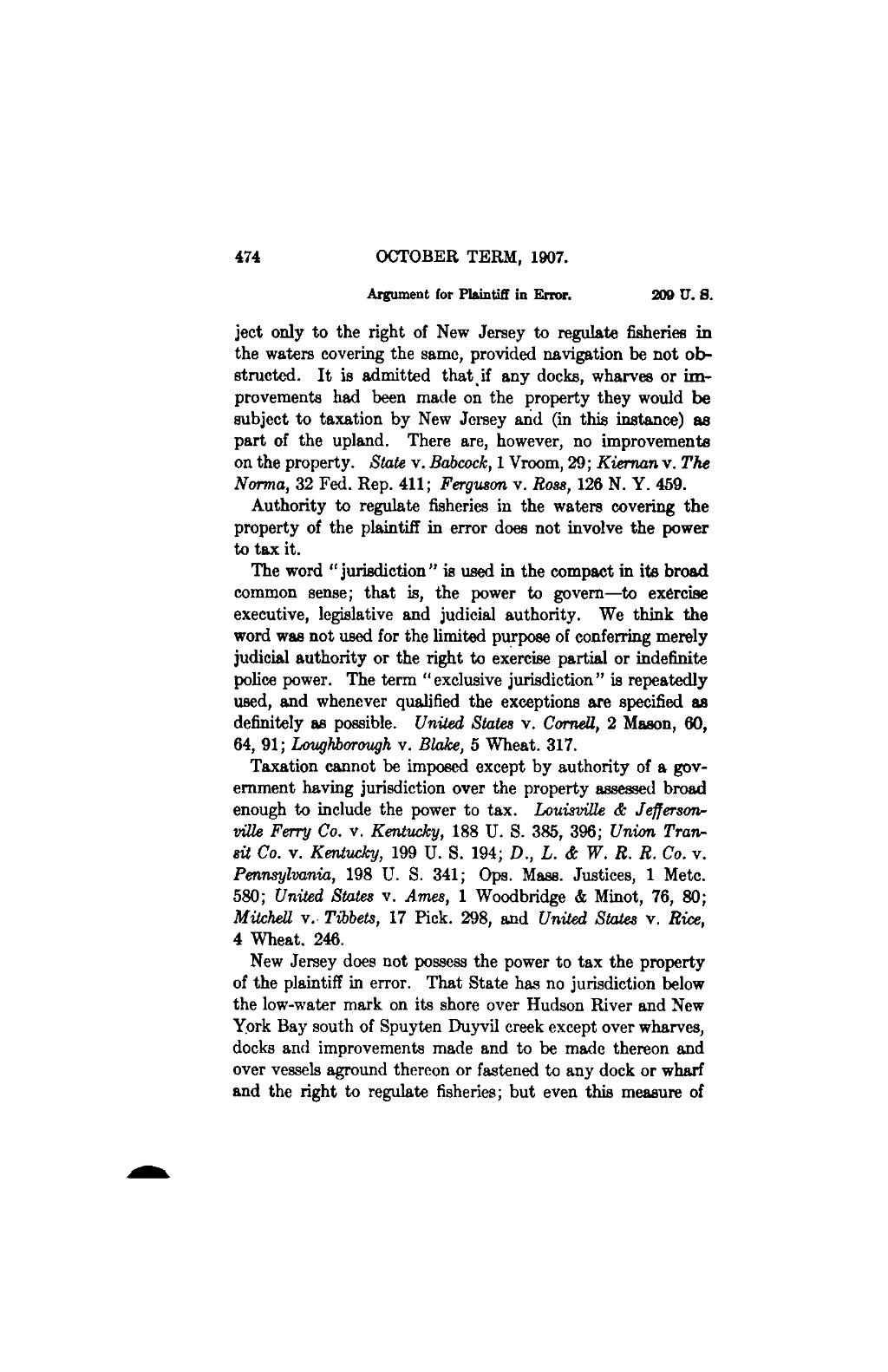474 OCTOBER TERM, 1907. Ar?,ment for Plaintiff in Error. 209 U.S. ject ouly to the right of New Jersey to regulate fisheries in the waters covering the same, provided navigation be not ob- structed. It is admitted that.if any docks, wharves or im- provements had been made on the property they would be subject to taxation by New Jersey a?d (in this instance) as part of the upland. There are, however, no improvements on the property. State v. Babcock, 1 Vroom, 29; Kiernan v. The Norma, 32 Fed. Rep. 411; Ferguson v. Ross, 126 N.Y. 459. Authority to regulate ?heries in the waters covering the property of the plaintiff in error does not involve the power to tax it. The word 'c jurisdiction" is used in the compact in its broad common sense; that is, the power to govern--to exercise executive, legislative and judicial authority. We think the word was not used for the limited purpose of conferring merely judicial authority or the right to exercise partial or indefinite police power. The term "exclusive jurisdiction" is repeatedly used, and whenever qualified the exceptions are specified as definitely as possible. Un?.e.d States v. Cornd/, 2 Mason, 60, 64, 91; Lo?hboro?h v. B/ake, 5 Wheat. 317. Taxation cannot be imposed except by authority of a gov- ernment having jurisdiction over the property assessed broad enough to include the power to tax. Lou?ille & Jefferson- ville Ferry Co. v. Kentucky, 188 U.S. 385, 396; Un6?n Tran- sit Co. v. Kentucky, 199 U.S. 194; D., L. & W. R. R. Co. v. Penns?lvan?t, 198 U.S. 341; Ops. Mass. Justices, 1 Metc. 580; Un?d States v. Ames, 1 Woodbridge & Minor, 76, 80; M?che// v.. T?bbets, 17 Pick. 298, and United States v. R?ce, 4 Wheat. 246. New Jersey does not possess the power to tax the property of the plaintiff in error. That State has no jurisdiction below the low-water mark on its shore over Hudson River and New Ygrk Bay south of Spuyten I)uyvil creek except over wharves, docks and improvements made and to be made thereon and over vessels aground thereon or fastened to any dock or wharf and the right to regulate fisheries; but even this measure of
�
